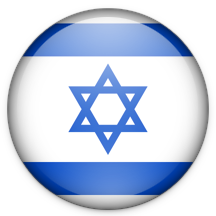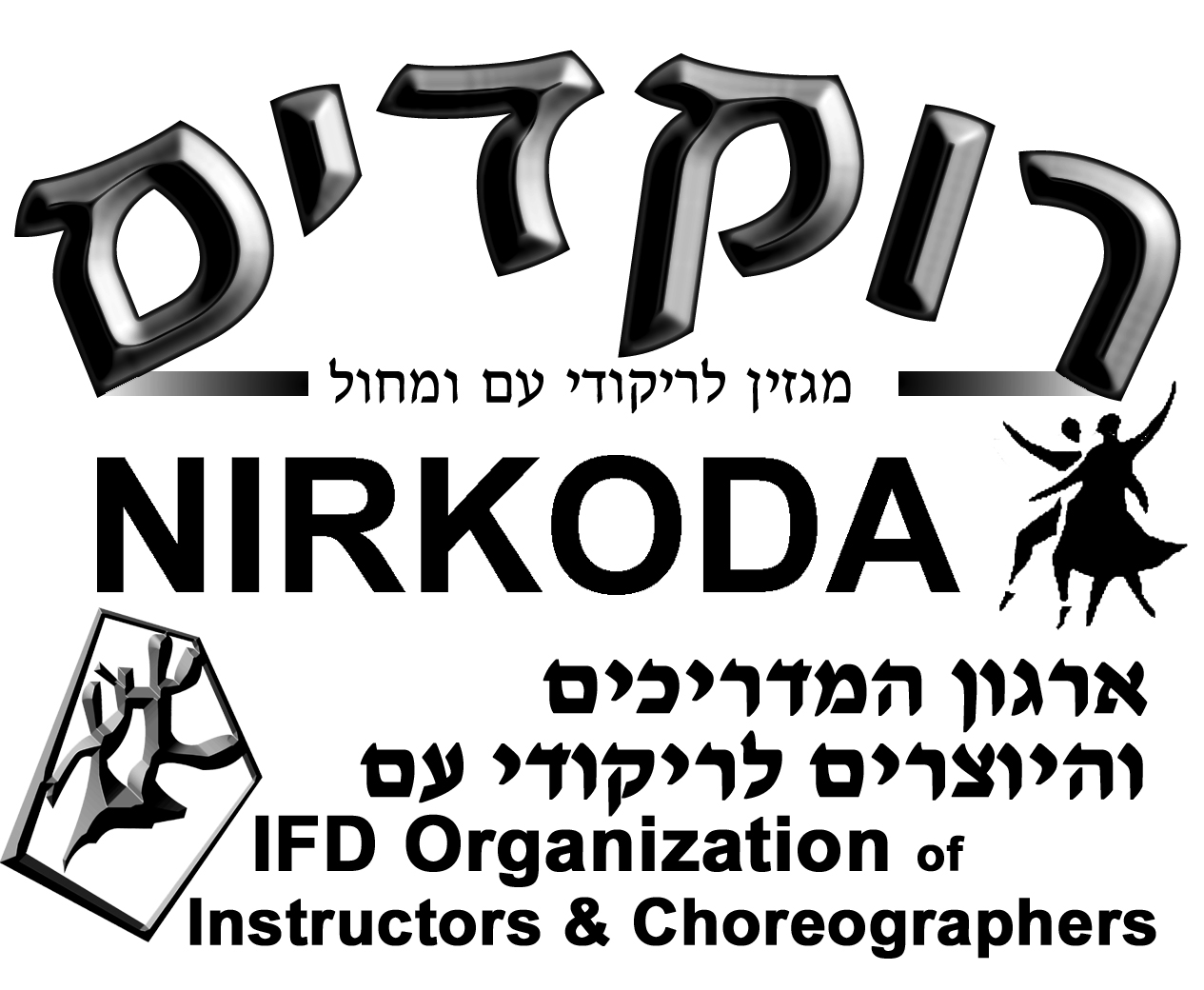- Home
- Rokdim-Nirkoda 118
- Sipur Milchamot (Sipurei Milchamot)
-
236
Orly Star Setareh was born in Jerusalem, Israel and moved with her family to Beverly Hills, California in the United States when she was seven years old. She studied ballet as a child but developed a sense of love and devotion for Israeli folk dance at the age of 19. She assisted and was mentored by David Dassa in Los Angeles for 16 years. Today, Orly conducts the largest Israeli dance session in Los Angeles with young and veteran dancers every Wednesday evening at “Adat Shalom”.
With over 26 years of teaching experience, instructing Israeli dance to children and adults of all ages throughout the Los Angeles and the Valley areas, Orly Star is the “heartbeat” and energy of the community! She promotes a passion for Israel and inspires a love of learning. Her charismatic, welcoming nature immediately captivates new dancers and sparks a much-needed connection to our Jewish community.
Orly infuses a fresh and young vibe into every teaching lesson while maintaining the importance of tradition. She creates Israeli dance programs for many Jewish private schools and summer camps and is invited all over the world to educate teachers on how to bring the younger generation to dance. She works hard to ensure that folk dancing continues and is passed down from generation to generation.
Orly has choreographed Israeli dances that are danced all over the world. She loves to create dances that bridge the gap between the older and younger generations so that both can dance together. Her most beloved dance is “Sipur Milchamot” (Sipurey Milchamot) – A Story of Wars (War Stories)”.
Orly tells us about the dance:
This is a song and dance that is a war story and tribute to a heroic 19-year-old Golani (IDF) soldier, Re’em Meir Betito, who was killed on October 7th while protecting Israel. The lyrics of the song recreate the words and last conversation Re’em had with his mom on the phone before he was killed. He was crying and afraid. She told him: “wipe your tears. You have prepared your whole life for this situation. You know exactly what to do. Everything is okay. You have to stay strong!” But he replies: “this situation is much bigger than me. Everyone around me has died. I see things no one should see. I just want to tell you that I love you and if something happens to me and I don’t get out of this alive please know that I lived a little but I loved a lot.” The song concludes with the heart-wrenching, poignant lyrics: “When dreams die, heroes are born, memories live on”.
The dance is a waltz that is like a painting. Each step is like a brush stroke of intense emotions. The beginning of the dance evokes waking up in the morning to go to his post. In the transitional balance step sequence, there is a gesture of wiping your tears as your hands swipe across your eyes. The next part uses back and forth movement with double tcherkessia steps and turning in and out of the circle, mirroring the conversation between Re’em and his mother. Following this there is a backward movement to show that the nation of Israel is behind our soldiers, supporting them from near and far.
This dance is a journey that makes you feel a sense of appreciation and gratitude for the sacrifices of our soldiers – our heroes and champions. It is a story about our Jewish history in the past and present- the story of our people and our country – then and now. The dance is relevant and created with respect and intention. It’s a dance for everyone.
Sipur Milchamot – Dance Notation
Formation: Circle
Structure: One verse, two parts, transition, additional phrase
Meter: 3/4 (In the notation, each count represents one measure.)
Part A: Face Center
1 Waltz step fwd (RLR) rising on toes and raising arms upward.
2 Waltz step bwd (LRL) lowering arms.
3-4 Balance step R to rt. w/R arm opening upward and out to rt.; balance step L to left. w/L arm opening upward and out to left.
5 1¼ turn rt . moving CCW to end facing CCW.
6 Rock fwd onto L, step back on Rin place, rock back onto L.
7 Step R fwd, brush L fwd, step R fwd.
8 Repeat count 7.
9-10 Two waltz steps fwd (RLR, LRL).
11-12 Full turn fwd with waltz step (RLR); cross L across R, step R back in place, step L to left to face center.
13-14 Repeat counts 1-2 (waltz steps fwd & bwd raising and lowering arms).
15-16 Full turn left with two waltz steps R-L beginning with R crossing over L.
17-32 Repeat counts 1-16.
Transition:
1-3 Three balance steps beginning with RLR. On the first two balance steps, the back of each hand wipes across eyes reflecting the song lyrics, “wipe the tears”.
4 Turn and ¼ left with waltz step (LRL).
Part B: Face Center
1 Stamp R across L to left turning body ¼ turn to left; step L back in place; step R to rt. opening to face center.
2 Step L across R to rt. turning body ¼ turn to rt; step R to rt., step L behind R to face center.
3-4 Repeat counts 1-2 (Part B).
5-6 Double tcherkessia step: Cross R over L, step L back in place, step R to R; cross L over R, step R back in place, step L to left.
7 Move fwd toward center turning ½ turn rt. with RLR.
8 Move out of center turning ½ turn left with LRL.
9-10 Moving CCW: Waltz step R fwd; waltz step L fwd turning ½ turn left to face CW.
11-12 Moving bwd CCW: Waltz step R bwd; waltz step L bwd turning ¼ turn rt. to face center.
13-14 Balance step R.; full turn left with LRL.
15-16 Repeat counts 1-2 Part A.
17-24 Repeat counts 9-16 Part B.
Repeat Part A counts 1-16
Repeat Transition
Repeat Part B
Additional phrase (after the second time through the dance):
1-2 Balance steps from side to side (RLR, LRL).
3-4 Full turn rt. with two waltz steps R-L moving CCW on the line of the circle.
5-8 Repeat counts 1-4.
Ending: Repeat Part A counts 1-12, step fwd on R with arms raised, hold.
Instructions notated by Ruth Goodman and Allen King
Sipurey Milchamot (song title)
Lyrics and Music: Eli Huli, Or Frey, Ido Ohayon; Vocalist: Eli Huli
Transliteration
Kamti baboker lifnei hazricha, ve…
Ze od yom Shabbat she’ani mifasfes arucha be…
Chultza levana, lovesh ta’madim, olim le’shmira
Avak ve’ashan memalim ta’einayim
Shrikot pagazim machrishot et ha’oznayim
Ze lo kmo ba’sratim
O sipurey milchamot
ra’iti dvarim she’asur li lirot
Menagev et hadma’ot
Atem mistaklim alai
“Ata kvar muchan le’ze”
Omrim ze katan alai
Aval ani katan le’ze
Kulam me’a’chorai
Ve’im lo netze mi’ze
Taydu she’chayiti me’at aval ahavti harbeh
Chozrim lamutzav lo hifsaknu lalechet
Eich oto hamakom nir’a kol kach acheret
Kulam nilchamim u’ven kavanot
Cholmim al kol ma she’yacholnu lihyot
Menagev et hadma’ot
Atem mistaklim alai
“Ata kvar muchan le’ze”
Omrim ze katan alai
Aval ani katan le’ze
Kulam me’a’chorai
Ve’im lo netze mi’ze
Tayd’u she’chayiti me’at aval ahavti harbeh
Ending
Od me’at erev achshav kvar yode’a
Slicha im pagati be’mi she’shome’a
K’she’chalomot metim giborim noladim
Zichronot nisharim
Translation
I woke up in the morning before the sunrise, and…
It’s another Shabbat that I’m missing a meal, in a…
White shirt, wearing my uniform, going onto guard duty
Dust and smoke fill my eyes
The whistling of shells deafens my ears
It’s not like in the movies
Or war stories
I saw things I shouldn’t have seen
I wipe away the tears
You look at me
“You’re already prepared for this”
They say it’s not a big deal for me
But I’m too small for this
Everyone’s behind me
And if we don’t get out of this
Know that I lived a little but loved a lot
Returning to the outpost, we didn’t stop walking
How the same place looks so different
Everyone is fighting and between the (rifle) scopes
We dream of everything that we could have been
I wipe away the tears
You look at me
“You’re already prepared for this”
They say it’s not a big deal for me
But I’m too small for this
Everyone’s behind me
And if we don’t get out of this
Know that I lived a little but loved a lot
Ending
It’s almost evening, I already know
Sorry if I hurt anyone who’s listening
When dreams die, heroes are born, memories live on









Comments
התראות